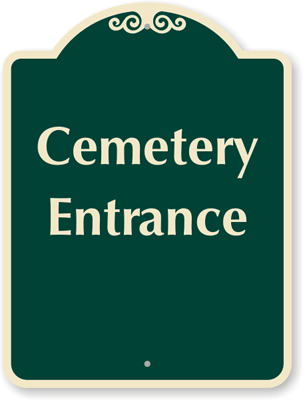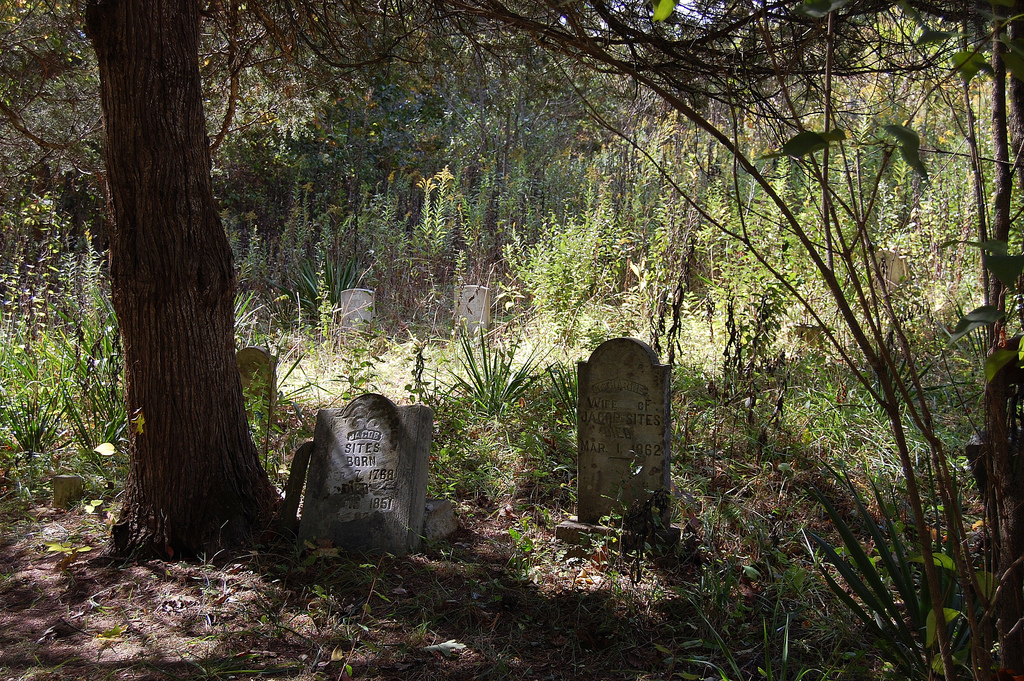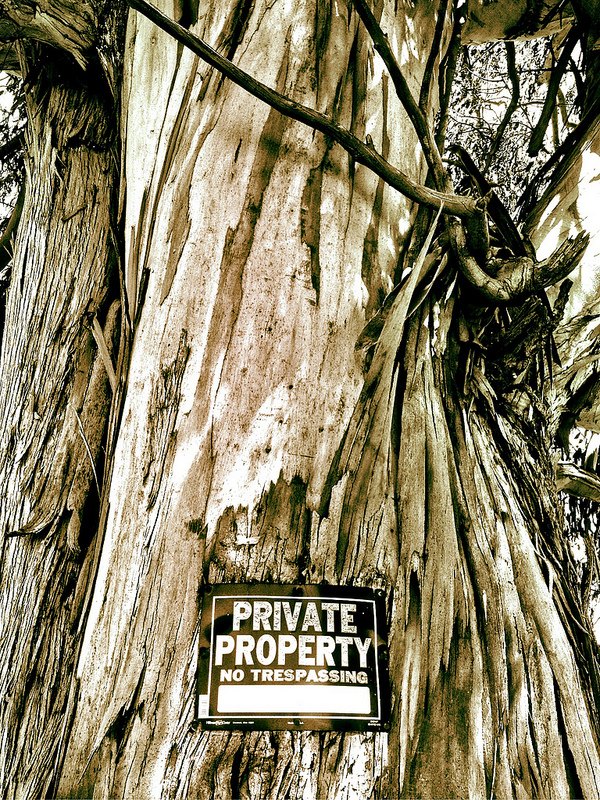When cemeteries become private property

Cemetery entrance sign available here.
In Tennessee, the placidly named Clearwater Cove Homeowners Association is preventing the descendants of the Click and McLemore families from visiting their ancestors who are resting in peace.
The first of the Click-McLemores were buried in the cemetery way back in 1840, and to this day, their great-great-great-grandchildren (septuagenarians themselves) continue to visit and preserve the plot of land.
But the Clearwater Cove Homeowners Association, which now owns the property, has installed a locked gate, limiting vehicular access to the cemetery. In an interview with the ABC-affiliate in Knoxville, Tennessee, Pat Gwathney, an elderly woman with a cane, who is both a Click and a McLemore, falters up the 30-foot gravel path to the bedeviling gate. She bursts into tears at the thought of not being able to visit the cemetery with quite as much ease as before.
Property rights are, essentially, the right to exclude. But practice, and sometimes law, particularly in Southern states where century-old family cemeteries are a part of the fabric of the area’s cultural heritage, have allowed continued access to cemeteries despite standard private property laws.
When Clearwater Cove installed the gate, they sent a letter to the descendants of the dead, stating that they were welcome to walk the 30-foot gravel road to the cemetery, and around the gate, at any time. Next to a large, imposing “private property no trespassing” sign, they posted another one, hand-drawn with a faint ballpoint pen, inviting access to the descendants.
It seems a feeble attempt at keeping to the letter of the law and basic human decency. But it’s more than you can say about the Hatfields of Kentucky. In a generations-old feud involving (appropriately) private property, six McCoys were killed and buried on land that eventually came to belong to the Hatfields. Giving access to the burial plots of their blood enemies is the last thing the Hatfields want to do. The feud over property rights rages on to this day, from beyond the grave.

Family plots are part of the Southern cultural heritage. Image by Richard Freeman.
More perniciously, urban sprawl and property development is taking over what was supposed to be the final resting places of the dead — at a rate of 100 family cemeteries per year in Tennessee alone. Unlike the Northeast, where people tend to be buried in public or church side plots, Southerners buried their own in their own land. As family fortunes swayed, people moved away, and deeds changed hands, the unconsolidated system of burial left many a dead ancestor vulnerable. While there are enough protections to keep builders from rudely paving over a cemetery encasing the dead in asphalt, many are paying to have the bodies dug up and moved to a more convenient place. It’s a move that preservationists and historians say disregards the historical value of family cemeteries as “outdoor museums” — to say nothing about the disrespect.
Private property laws have been around for centuries — nearly as long as the concept of the rule of law itself. But humanity has been ritualistically burying our dead for 300,000 years. Regardless of laws, if you buy property with a cemetery keep in mind that some obligations are older than property rights.

Some things are older than private property. Like this tree. Image by Harminder Dhesi.
Category: Property

















